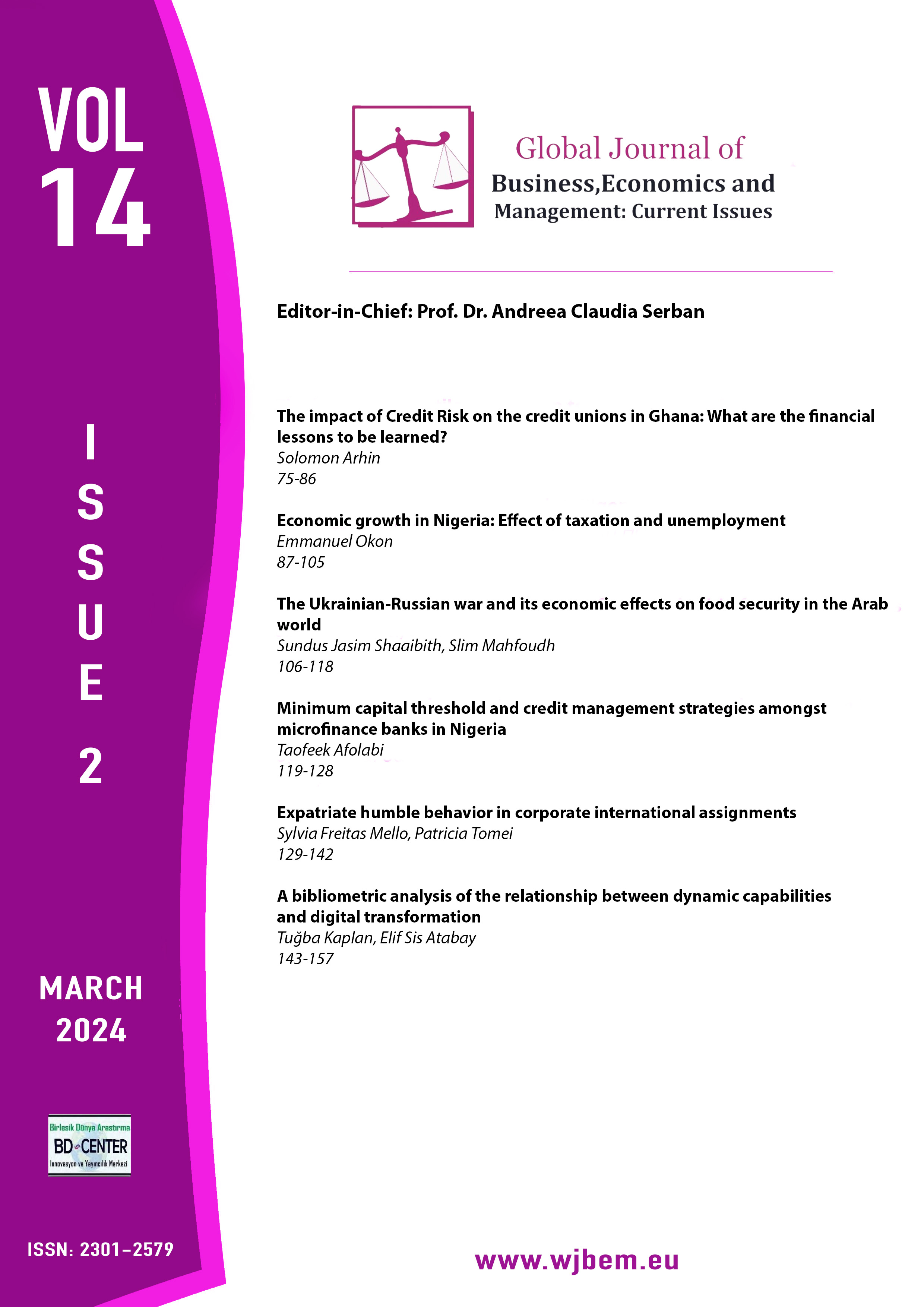The impact of Credit Risk on the credit unions in Ghana: What are the financial lessons to be learned?
Main Article Content
Abstract
Unlike commercial banks that deal with stakeholders and customers from different places, Credit Unions deal solely with their members who are in turn the owners of the union. This can therefore lead to conflict between borrowing members (who demand low credit from the union) and saving members who request a high rate of return on what they have invested in the union. The study aimed to assess the credit risk management approaches and their effects on the financial performance of Credit Unions in Ghana. The study used a purposive sampling technique to select 35 respondents from the credit unions. The data was collected from the respondents using questionnaires. The data was analyzed using descriptive statistics such as mean, and standard deviation. The study further revealed that the occurrence of credit risks had retarded the financial progress of the Credit Union and made them spend more than it earns discouraging customers from saving with the Credit Union. The study recommends that the Government and management of the credit unions should have good policies in place to collect back loans granted to customers.
Keywords: Credit risk; credit unions; descriptive statistic; retarded.
Downloads
Article Details

This work is licensed under a Creative Commons Attribution-NonCommercial-NoDerivatives 4.0 International License.
The Global Journal of Business Economics and Management: Current Issues is an open-access journal. The copyright holder is the author or authors. Licensee: Birlesik Dunya Yenilik Arastirma ve Yayincilik Merkezi, North Nicosia, Cyprus. All articles can be downloaded free of charge. Articles published in the Journal are Open-Access articles distributed under the CC-BY license [Attribution 4.0 International (CC BY 4.0)].

